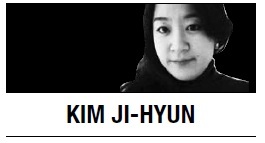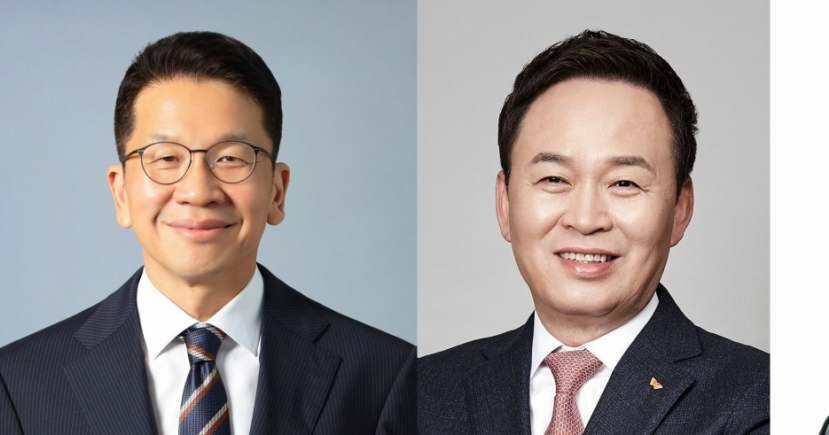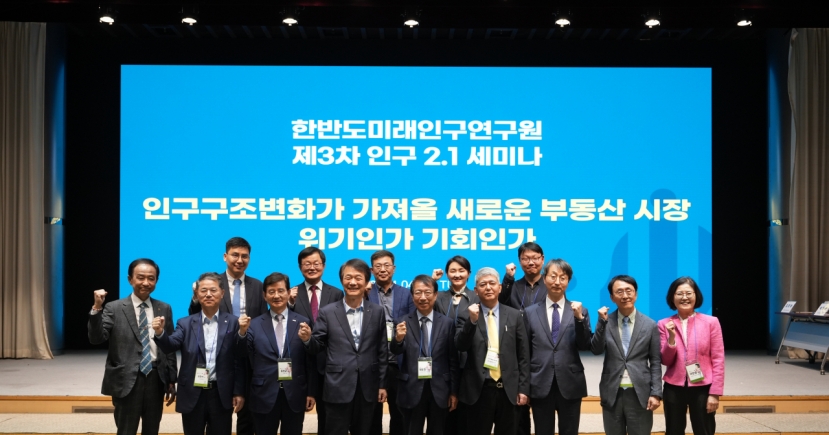Second Opinion
[Kim Ji-hyun] No line for Beijing
 |
Sensitive folks are good at sniffing out what’s going on beneath the surface. They know, for instance, that “fine” is never really “fine,” and that “forget it” actually means “I will never forget this. Ever.”
But even the dullest people know that there are some lines you just don’t cross and these lines are usually clear from the beginning.
In this regard, Beijing seems quite clueless. Or perhaps if you are called the “world’s factory,” you get to call the shots on anything and breach all kinds of boundaries?
China has crossed the line again and again regarding Korea. A line that is quite obvious.
I’m talking about its so-called “revenge” on Seoul for agreeing to the deployment of the Terminal High Altitude Area Defense anti-missile system here. The impact of China’s anti-Korea policies run deep. Lotte is close to meltdown in China, while Hallyu celebrities and their management firms are also suffering. As for duty free stores, sales this year may fall by up to 1 trillion won ($874.7 million). Even public sentiment is bad and it’s sad because Beijing is not even aiming at Korea. Its real purpose is to get under Washington’s skin.
So let’s talk about whether China’s actions are justified.
On the surface, they argue that THAAD is a risk to its national security and that it’s not vital to keeping Korea protected. Maybe it is, maybe it isn’t. But tell me, do you take chances when it comes to protecting your home? You know that expensive security system that sometimes malfunctions and makes the police come over in the middle of the night? Why don’t you just throw it out, since you never know if you ever get any mileage on it?
The issue of THAAD is similar to this. And you may argue, it’s not fair for the neighbors because the US is in on it too. Well, tough. For mutual strategic reasons that you may or may not be happy with, South Korea relies on the US for a large part of its security.
Now, China, if you want to take up that role and pay for the expenses while you are at it -- and of course keep North Korea in line -- then why not? Let’s draw up a new contract. We don’t need THAAD. We’ll have you. But since we don’t have that kind of a partnership with you -- never mind what it’s called diplomatically -- and since you have interests in keeping the North Korean regime afloat, we need to protect ourselves in other ways.
Here are other reasons that experts cite as to why Beijing has no reason to take issue with THAAD.
First, deploying the system was not a pre-emptive act. It was a reaction to North Korean nuclear provocations. Second, THAAD is a purely defensive system. It does not carry destructive warheads. Third, THAAD is aimed at North Korea, not China. The system is equipped with a radar with a maximum detectable range of just 800 kilometers that cannot reach into China. Fourth, even if the THAAD radar could reach across Chinese territory, its military capability is no match for China’s, which has powerful radars installed in Heilongjiang and Shandong provinces to monitor the two Koreas, Japan and also the Western Pacific.
Despite all these reasons, China is abusing its power and status to pressure others, namely the US and Korea.
Korea has no status to flaunt regarding THAAD or any security matter. Its choices are all based on how to defend the country and its people from outside risks, mainly North Korea. Even if it feels things are unbalanced and to its disadvantage, it can do nothing more than to complain to international bodies and hope for the best.
China, on the other hand, is in quite a different position. You may argue, this is the way things go, this is how things work. But then there is no justice anywhere. The status or wealth of a country should never be used as a bargaining point. The only way it should be used is for benefits that can and should be shared by everyone. In short, it can be used to bully people and countries into behaving, but not to bully people and countries into behaving in the way they want.
Furthermore, THAAD, regardless of whether or not Beijing agrees, was a contract signed between Seoul and Washington. And unless an international court or any sort of body with similar authorization says the contract should be reconsidered or rescinded, Beijing should recognize the binding nature of the agreement.
I cannot through this column call for a boycott on China. And it is my wish -- and I am sure, the wish of many others like myself -- that the problem will be resolved as peacefully as we can. But as an ordinary Korean citizen, it’s difficult to be so open-minded if Beijing continues on this warpath for no justifiable reason.
By Kim Ji-hyun
Editor-in-chief, The Investor
(jemmie@heraldcorp.com)


![[Exclusive] Korean military set to ban iPhones over 'security' concerns](http://res.heraldm.com/phpwas/restmb_idxmake.php?idx=151&simg=/content/image/2024/04/23/20240423050599_0.jpg)




![[Herald Interview] Bridging Korea, Philippines for better future](http://res.heraldm.com/phpwas/restmb_idxmake.php?idx=151&simg=/content/image/2024/04/23/20240423050735_0.jpg)
